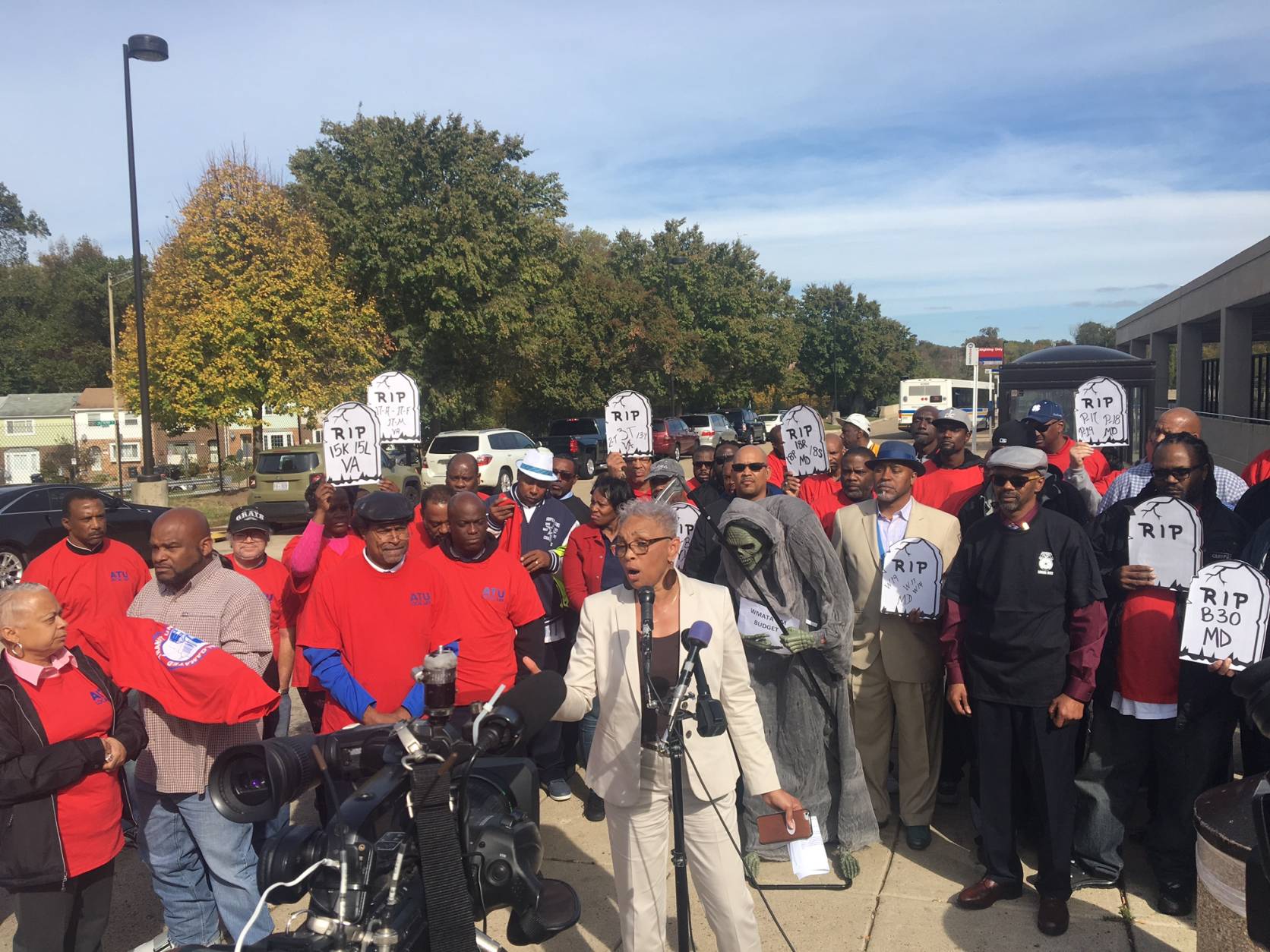
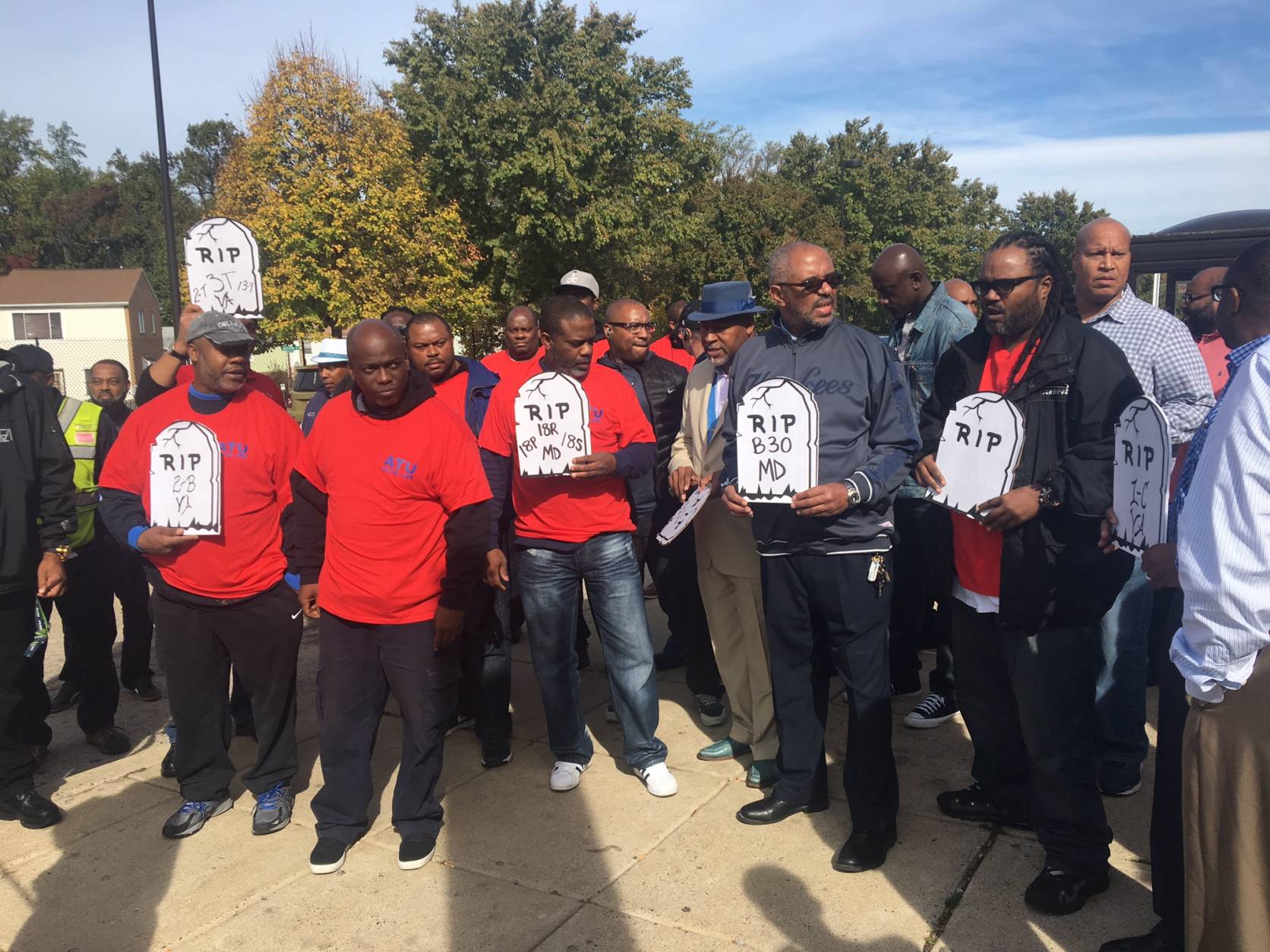
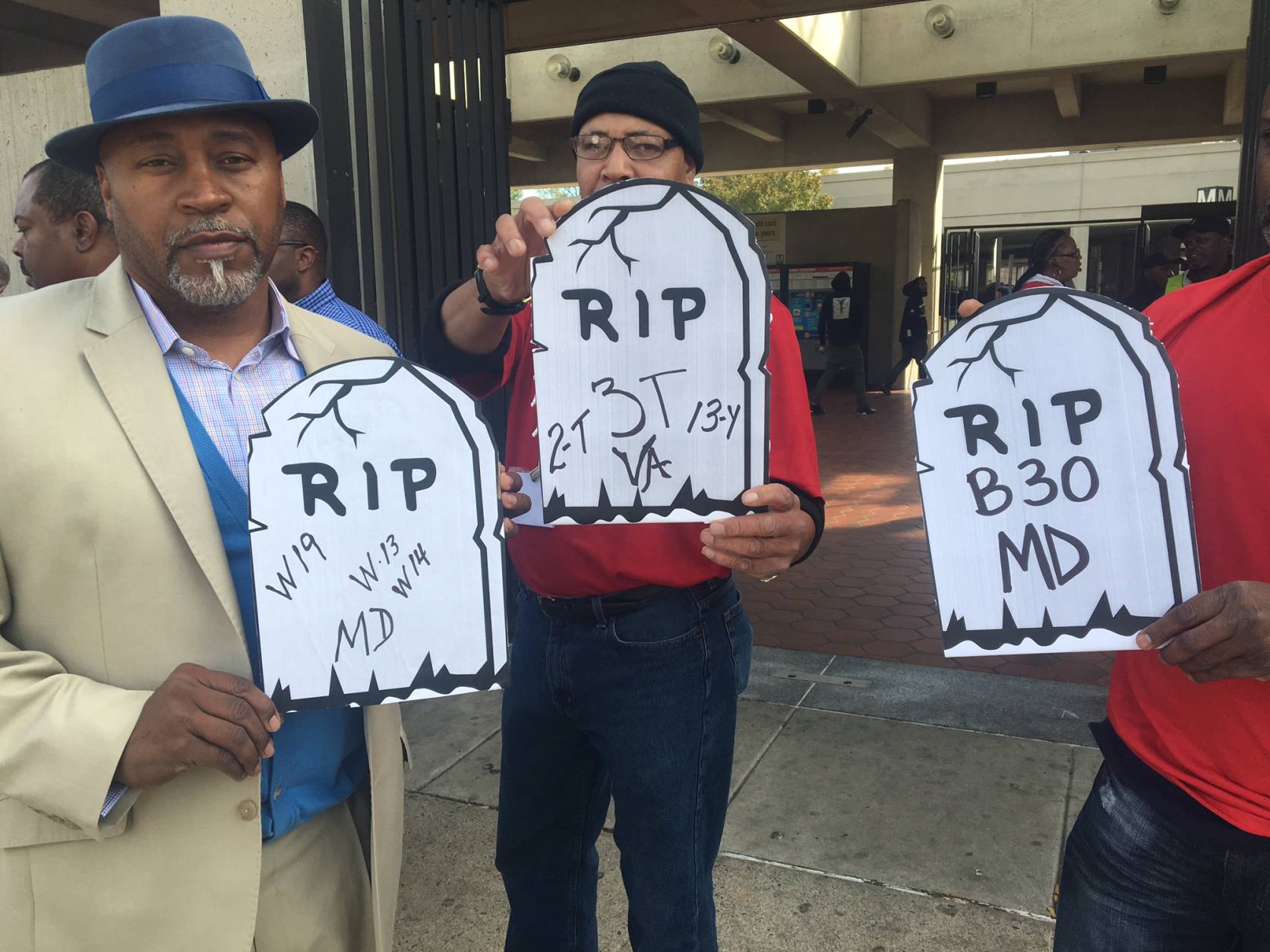
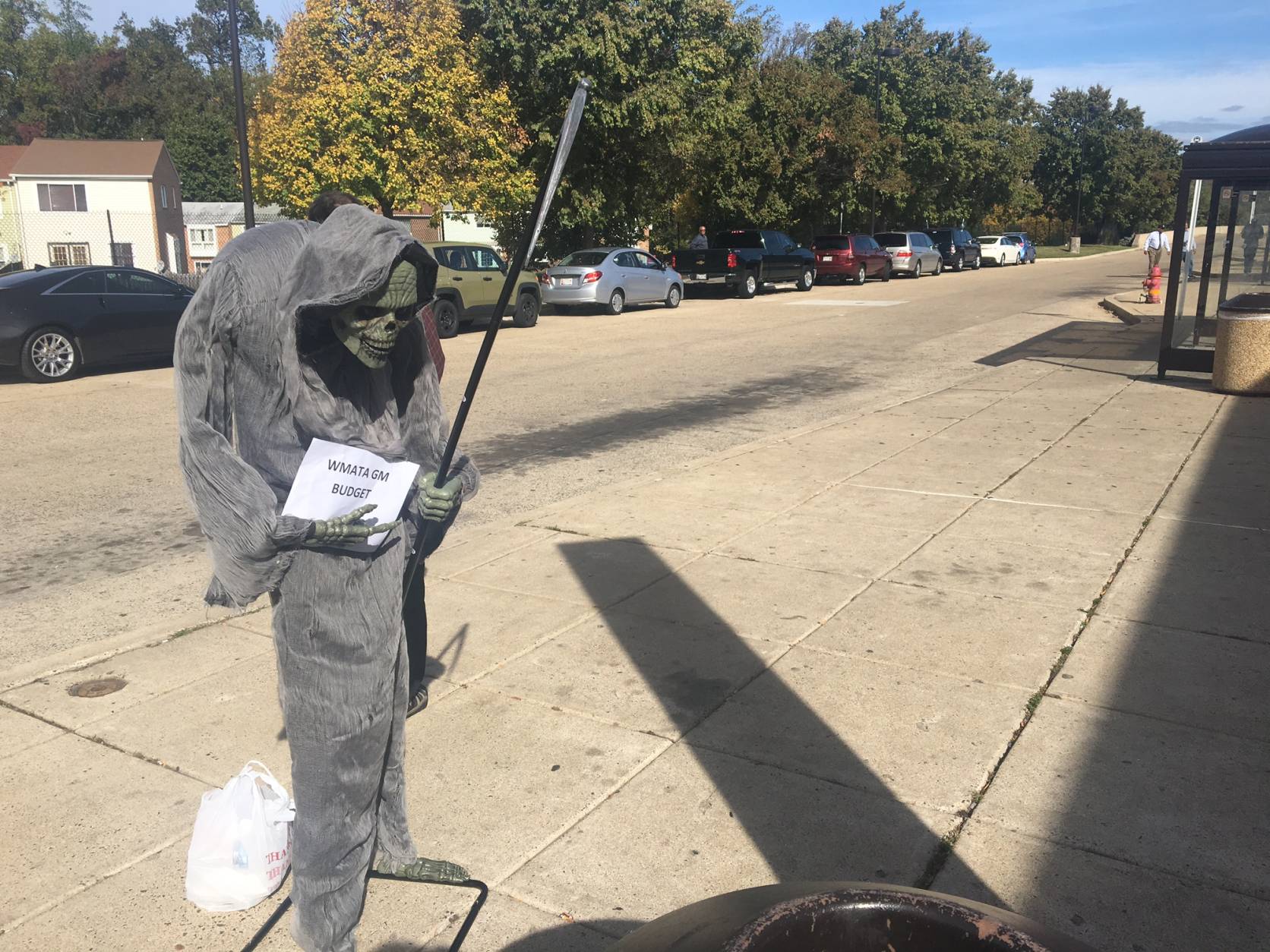
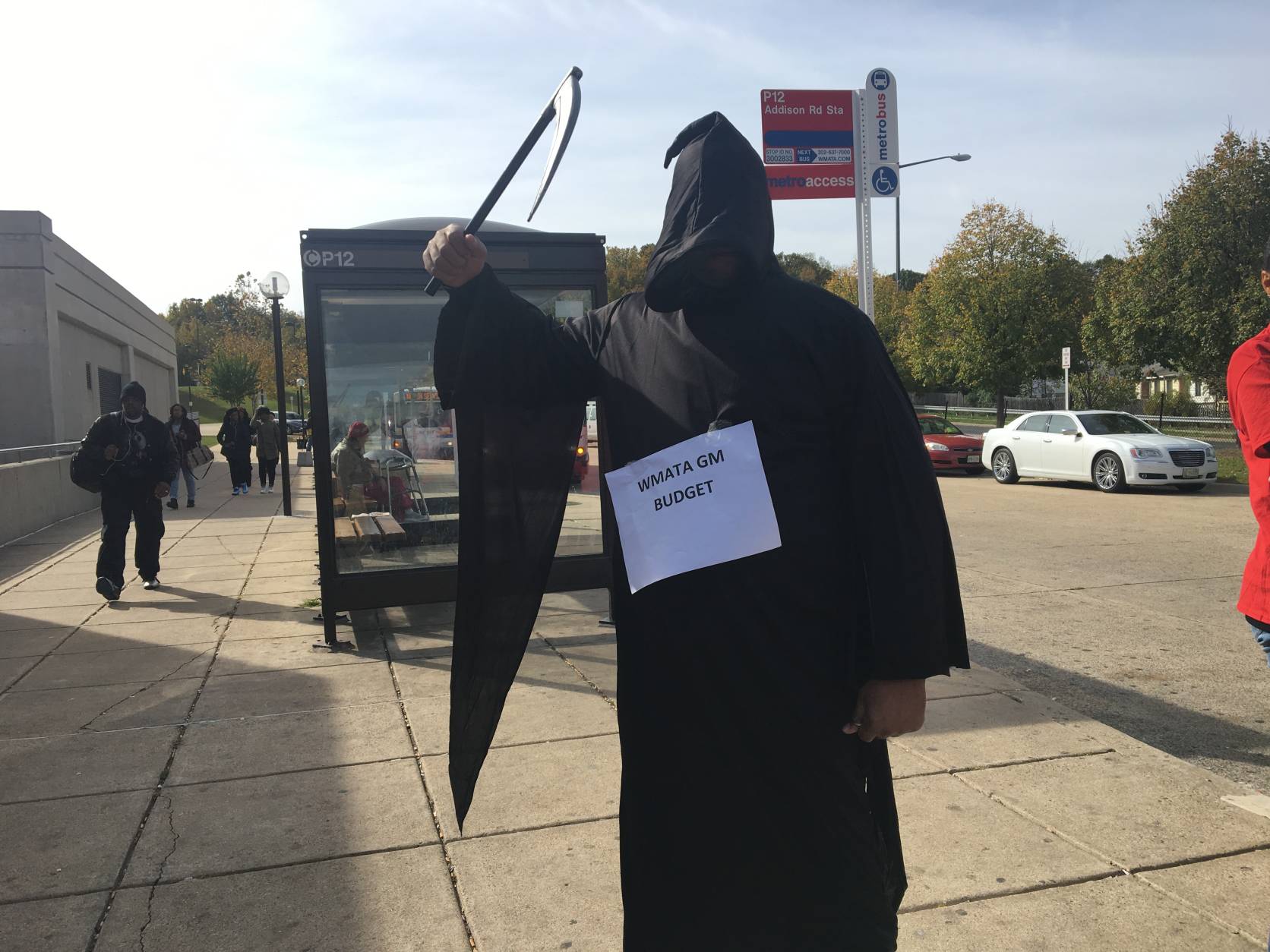
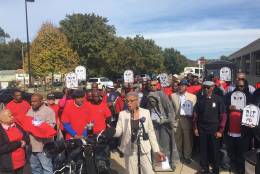
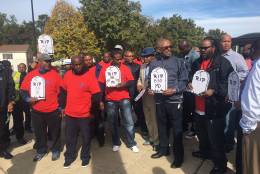
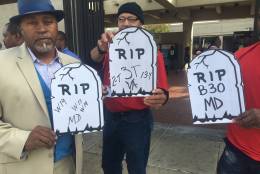
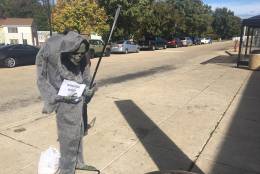
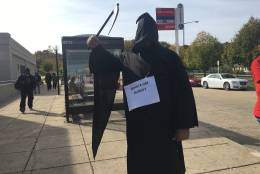
WASHINGTON — Plans to raise Metro fares and cut service would send the system into a “death spiral,” the leader of Metro’s largest union said Monday.
“This is a death spiral,” said Jackie Jeter, president of the Amalgamated Transit Union Local 689. “We don’t agree with it. We think that it’s harming the public. It’s causing undue hardship,”
Metro leaders painted the budget proposal as an attempt to address the reality of deep-seated problems and sharply dropping ridership.
“If you’re trying to get people back, you’re not going to do more to take them away, and that’s exactly what’s happening,” Jeter said as she stood outside the Southern Avenue Metro Station, near an animatronic grim reaper Halloween decoration and a union member who dressed the part as well.
“The general manager is acting like the grim reaper,” Jeter said. “You cannot cut your way to a good budget. It should not be on the backs of the workers nor should it be on the backs of the riders.”
General Manager Paul Wiedefeld has said that Metro is not in a death spiral, but said the transit agency needed to address the decline of nearly 100,000 riders each weekday compared to 2009.
“I think just readjusting to that reality makes sense,” Wiedefeld said. “I don’t think that’s a long-term trend.”
He said projections called for 25 percent more growth in the region.
“We are a central part of that growth, and we will continue to be,” he said, “but the way that we do that is to make sure that service is reliable.”
He said cutting service during rush hour — offering trains every eight minutes instead of every six minutes at five Metrorail end points — could help Metro actually run on schedule, which, in turn, could bring some riders back.
“I think what we have not being doing is performing what we committed to in some of those service levels, so I want to reset that so that we do deliver what we put out there,” he said.
The plan that Wiedefeld will present to the Metro Board of Directors on Thursday also would cut a number of bus routes.
“I think it’s going to take a number of parts of the community and the agency to solve some of these issues,” Wiedefeld said.
Metro’s board will ultimately decide in March what service cuts, fare hikes and increased contributions from local jurisdictions to implement when this budget kicks in July 1.
“Costs do go up, so I think most people do understand that — they may not like it, but they understand that,” Wiedefeld said.
The last time Metro raised fares was in 2014.
“There has to be another way,” Jeter said.
She did not give any specific proposals, but said Metro management should have more discussions with workers to get their input.
Metro and the ATU Local are currently negotiating a new contract, after the previous deal expired earlier this year.
“Anything you can think of as a benefit as a worker, they’re trying to cut it,” she said.
Jeter said that includes health insurance, pensions and wages.
“All they want to do is cut, cut, cut. Not only do they want to cut the routes for the public, but they want to cut our jobs, too,” Jeter said.
With fewer trains and buses running, Metro would need fewer workers. Earlier this year, Wiedefeld had announced cutting 500 positions. The budget latest proposal calls for an additional 500 more, for a total of 1,000 positions cut.
Jeter said 45 of the 100 layoffs Metro announced Friday were people represented by her union.







